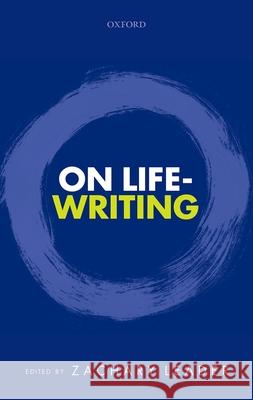On Life-Writing » książka
On Life-Writing
ISBN-13: 9780198704065 / Angielski / Twarda / 2015 / 300 str.
On Life-Writing
ISBN-13: 9780198704065 / Angielski / Twarda / 2015 / 300 str.
(netto: 195,20 VAT: 5%)
Najniższa cena z 30 dni: 194,75
ok. 16-18 dni roboczych.
Darmowa dostawa!
'Life-writing' is a generic term meant to encompass a range of writings about lives or parts of lives, or which provide materials out of which lives or parts of lives are composed. These writings include not only memoir, autobiography, biography, diaries, autobiographical fiction, and biographical fiction, but letters, writs, wills, written anecdotes, depositions, marginalia, lyric poems, scientific and historical writings, and digital forms (including blogs, tweets, Facebook entries). On Life-Writing offers a sampling of approaches to the study of life-writing, introducing readers to something of the range of forms the term encompasses, their changing fortunes and features, the notions of 'life, ' 'self' and 'story' which help to explain these changing fortunes and features, recent attempts to group forms, the permeability of the boundaries between forms, the moral problems raised by life-writing in all forms, but particularly in fictional forms, and the relations between life-writing and history, life-writing and psychoanalysis, life-writing and philosophy. The essays mostly focus on individual instances rather than fields, whether historical, theoretical or generic. Generalizations are grounded in particulars. For example, the role of the 'life-changing encounter, ' a frequent trope in literary life-writing, is pondered by Hermione Lee through an account of a much-storied first meeting between the philosopher Isaiah Berlin and the Russian poet Anna Akhmatova; James Shapiro examines the history of the 'cradle to grave' life-narrative, as well as the potential distortions it breeds, by focusing on Shakespeare biography, in particular attempts to explain Shakespeare's so-called 'lost years'.











